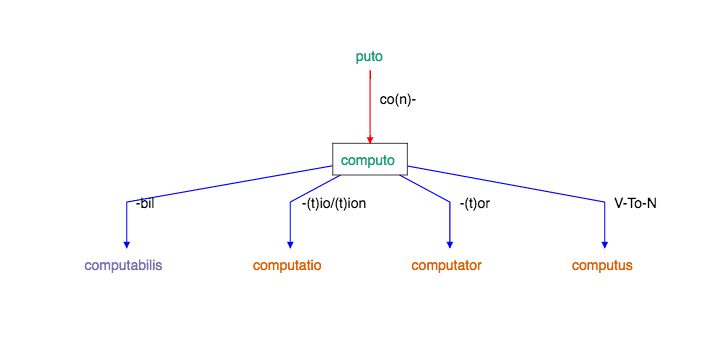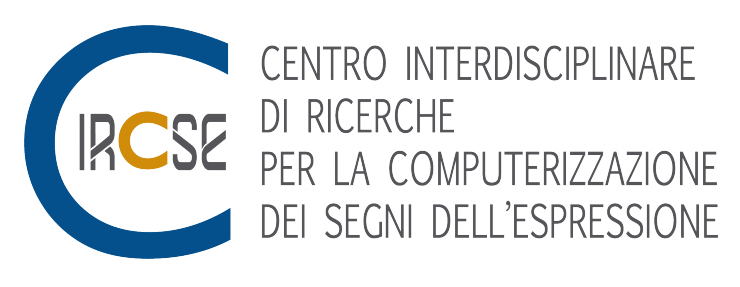Call for Papers
****** THIS CALL FOR PAPERS IS NOW CLOSED ******
First International Workshop on Resources and Tools for Derivational Morphology (DeriMo2017)
FIRST CALL FOR PAPERS
The First International Workshop on Resources and Tools for Derivational Morphology (DeriMo2017) will be held in Milan (Italy) on 5 and 6 October 2017, at the Università Cattolica del Sacro Cuore.
DeriMo2017 concludes the Word Formation Latin (WFL) project, funded by the European Union’s Horizon 2020 research and innovation programme under the Marie Skłodowska-Curie grant agreement No 658332-WFL. The project is based at the Centro Interdisciplinare di Ricerche per la Computerizzazione dei Segni dell’Espressione (CIRCSE), at the Università Cattolica del Sacro Cuore, Milan, Italy.
Submissions are invited for presentations featuring high quality and previously unpublished research on the topics described below. Contributions should focus on results from completed as well as ongoing research, with an emphasis on novel approaches, methods, ideas, and perspectives, whether descriptive, theoretical, formal or computational.
Proceedings will be published, open-access, in time for the workshop.
MOTIVATION AND AIMS
Until very recently, in the areas of Language Resources and Natural Language Processing (NLP), derivational morphology has always been neglected if compared to inflectional morphology. Yet the recent rise of lexical resources for derivational morphology have demonstrated that enhancing textual data with derivational morphology tagging can lead to strong outcomes.
First, it organises the lexicon at higher level than words, by building word formation based sets of lexical items sharing a common derivational ancestor.
Secondly, derivational morphology acts like a kind of interface between morphology and semantics, since core semantic properties are shared at different extent by words built by a common word formation process.
In the lively area of research aimed at building computational resources and tools for ancient languages, the WFL project fills a gap in the variety of those available for Latin, connecting lexical items on the basis of word formation rules. For a work-in-progress version of the resource, please visit http://wfl.marginalia.it.
This workshop wants to be both an opportunity for the presentation of WFL to the wider community, and a place where confrontation with other scholars engaged in the treatment of derivational morphology for different languages (either modern or ancient) can arise, and potentials for the cross-linguistic sharing of techniques and methods can be discussed.
TOPICS
The Workshop on Resources and Tools for Derivational Morphology aims at covering a wide range of topics.
In particular, the topics to be addressed in the workshop include (but are not limited to) the following:
- resources for derivational morphology
- connecting the derivational morphology level of annotation in language resources with other levels of linguistic analysis (e.g. semantic, syntactic…)
- (NLP) tools for the semi-automatic creation of resources for derivational morphology
- (NLP) tools including components of derivational morphology
- empirically based comparative and multilingual studies on derivational morphology
- empirically based diachronic studies on derivational morphology
- query tools for derivational morphology resources
- theoretical issues in derivational morphology.
INVITED SPEAKER
Pius ten Hacken (University of Innsbruck, Austria)
IMPORTANT DATES
Deadlines: always midnight, UTC ('Coordinated Universal Time'), ignoring DST ('Daylight Saving Time'):
- Deadline for paper submission: 25 June 2017
- Notification of acceptance: 24 July 2017
- Final, camera-ready, version of paper: 10 September 2017
- Workshop: 5-6 October 2017
INSTRUCTIONS FOR SUBMISSION
We invite to submit long abstracts describing original, unpublished research related to the topics of the workshop. Abstracts should not exceed 6 pages (references included).
The language of the workshop is English. All abstracts must be submitted in well-checked English.
Abstracts should be submitted in PDF format only. Submissions have to be made via the EasyChair page of the workshop at https://easychair.org/conferences/?conf=derimo2017. Please, first register at EasyChair if you do not have an EasyChair account.
The style guidelines to follow for the paper can be found here: http://derimo2017.marginalia.it/index.php/CfP/authors-kit.
Please, note that as reviewing will be double-blind, the abstract should not include the authors' names and affiliations or any references to web-sites, project names etc. revealing the authors' identity. Furthermore, any self-reference should be avoided. For instance, instead of "We previously showed (Brown, 2001)...", use citations such as "Brown previously showed (Brown, 2001)...".
Each submitted abstract will be reviewed by three members of the programme committee.
The authors of the accepted abstracts will be required to submit the full version of their paper, which may be extended up to 12 pages (references included).
ORAL PRESENTATIONS
The oral presentations at the workshop will be 30 minutes long (25 minutes for presentation and 5 minutes for questions and discussion).
PROGRAMME COMMITTEE CHAIRS
Eleonora Litta Modignani Picozzi (Università Cattolica del Sacro Cuore, Milan, Italy)
Marco Passarotti (Università Cattolica del Sacro Cuore, Milan, Italy)
PROGRAMME COMMITTEE MEMBERS
Mark Aronoff (USA)
Piermarco Bertinetto (Italy)
Jim Blevins (UK)
Giovanni Gobber (Italy)
Nabil Hathout (France)
Dag Haug (Norway)
Gerd Haverling (Sweden)
Andrew Hippisley (USA)
Claudio Iacobini (Italy)
Sandra Kübler (USA)
Rochelle Lieber (USA)
Silvia Luraghi (Italy)
Francesco Mambrini (Germany)
Fiammetta Namer (France)
Renato Oniga (Italy)
Sebastian Padó (Germany)
Renáta Panocová (Slovakia)
Vito Pirrelli (Italy)
Lucie Pultrová (Czech Republic)
Jan Radimský (Czech Republic)
Savina Raynaud (Italy)
Benoît Sagot (France)
Magda Ševčíková (Czech Republic)
Andrew Spencer (UK)
Pavel Štichauer (Czech Republic)
Marko Tadić (Croatia)
Zdeněk Žabokrtský (Czech Republic)

